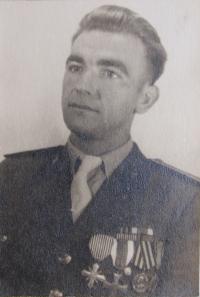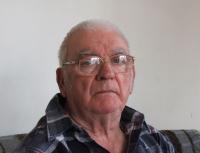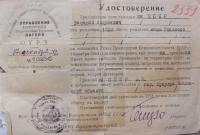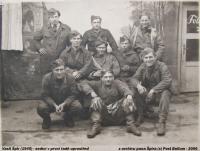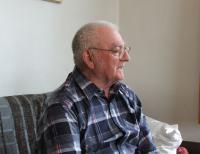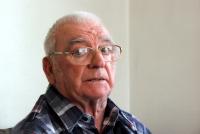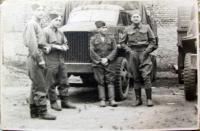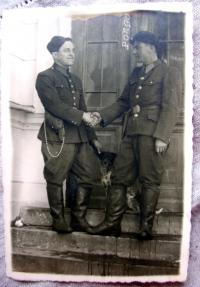“When we crossed the bridge over the river the Germans were ahead of us and the Dnieper River behind us. If the Germans had moved a bit faster, we would all have drowned. It was a really bad situation.”
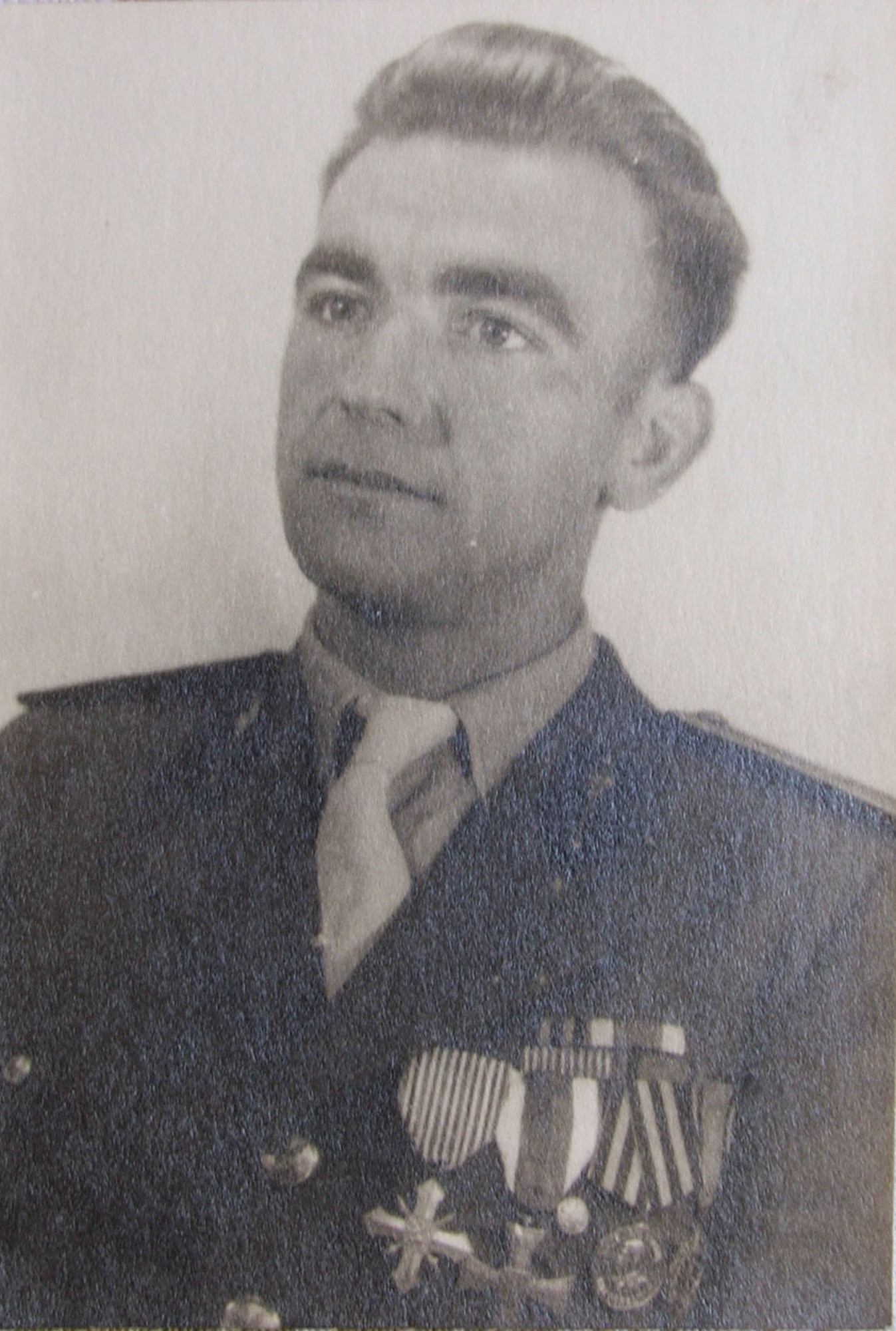
Download image
Vasil Špir, a retired Colonel, was born in 1922 in Carpathian Ruthenia. After the occupation of his motherland in 1940, he decided to flee to the Soviet Union. He was joined in this venture by his friend, but they were both arrested shortly after they had crossed the border of the USSR. They were interrogated and Mr. Špir was sentenced to three years of prison for illegally crossing the Soviet border. He spent these three years working in the coal mines of a forced-labor camp in Vorkuta.He was released in 1942 and sent to Buzuluk to join the Czechoslovak Army Corps. He was trained as an infantry soldier. He fought with his unit at Kiev and Biela Cerekev, where he was wounded in 1944. Afterwards, he was transferred to the mechanized company where he first served as a co-driver and later as a driver of a Studebaker truck. He participated in the battle of Dukla and the liberation of Czechoslovakia. Shortly before the end of the war he was wounded for the second time. After the war, he remained in the Army. In 1965, he completed his secondary education. He currently lives in Nový Strašecí.
